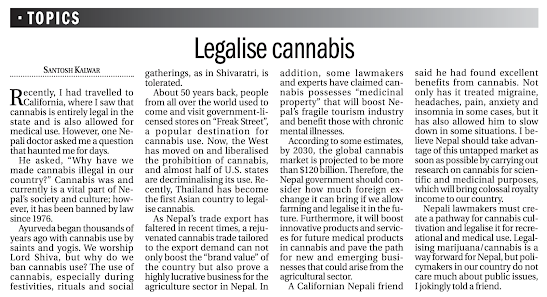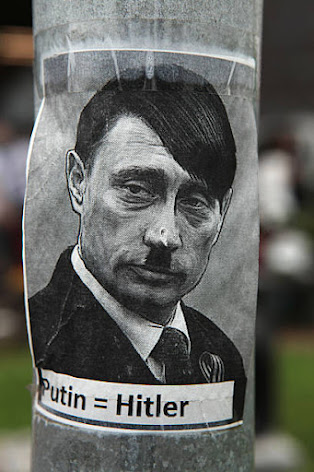Jan 22, 2017- The first time I discovered that my father cared for me immeasurably was when we went hiking together.
I was home for the Chhath Parba and my father had decided to steal me away from my mother and the world for a little bit of dad-and-son time. Mother was not very happy with the idea; but father—after fighting a little—had managed to take me on a holiday.
That morning, as we checked out from the resort, it had begun to drizzle. For some reason my father spontaneously decided that the weather called for an adventure. Hence, we started hiking towards Kalika Daada.
I remember having stopped by a lunch spot where my father made me eat chicken, “It’s delicious and will take you right to the top,” he had said in jest. After lunch he called mother, but he didn’t tell her about our impulsive decision to climb uphill.
I could tell my father had a knack for forecasting weather when the rain eventually died, and the sparse and feathery clouds slowly drifted away making way for clear blue sky.
It was my first time hiking in the hills, and I was just learning to walk with one foot faced sideways for better grip. Every detail is still vivid in my mind—I could hear birds sweetly chirp from every corner of the lush green forest. Oh, they made such sweet sound and I got captivated for they were no less entrancing than psychedelic music. Everything was serene and perfect. It was only towards the end of the hike that we came across a landslide. It didn’t look so difficult to triumph over and I thought I could use the skills I had garnered over the last few hours to get past it.
Perhaps, my father had sensed my over-confidence because he had called out to me saying, “Be careful, gravity can’t be trusted—it will bring you down as it wishes.” I just smiled.
While crossing the landslide, I slipped a little towards the precipice. I was this close to death when my father grabbed my hand, pulled me right back on trail and told me to walk properly.
In that moment I had realised two things: first, how much my father loved me and second, how fragile life really is. I had completed the rest of my hike pondering upon how life was so much more succinct than one conceptualises—and much shorter for one to weigh and process its aspects properly.
Queue number 111 popped up on the police screen finally. The European police officer assisted me with my visa issue.
“How can I help you?”
“I need to get back to Nepal immediately; my house collapsed in the earthquake and my father is trapped in the rubble.”
“Okay, calm down. I’ll see what I can do. What’s your social security number?” After I gave her all my details, I waited for her to return with an answer. I already feared I would have to go great lengths to apply for a visa, and I’d have to wait at least two to three weeks to get the permit to go back home.
Fortunately or unfortunately, the police officer returned, and said, “You don’t require a visa to go to Nepal—it’s your homeland. You can go right away if you wish, but if you do, you cannot come right back to Europe.”
“What should I do?” I asked.
“You can leave your application here with us, but it would be better to reapply from Nepal. Of course, the official process might take a bit longer than usual,” she said.
I would have to travel home with the quickest option available. I went to visit Meher at her apartment and explained my situation as elaborately as possible.
“You must leave to see your father as soon as possible. Maybe things are not as bad as we hear, but you’ll not know until you reach home. May be your father is still hanging in there to see you for the last time,” she insisted.
I booked the first flight to Nepal the next day. At the airport, I mused at how time had passed me by as I aged. Going home now felt as difficult as going back to school after a summer vacation.
In the last ten years in Europe, my life had been a quest for happiness and harmony—living with my lovely girlfriend in her dreamlike apartment. Now, I was ready to throw it all apart just for one single glance of my father. I couldn’t tell for sure if he would make out of the rubble alive.
For most of my flight, I cried like a baby. With every passing moment, the realisation of how much I loved my father grew. He was my only hero, the only person that I worshipped, the only person that I ever looked up to. As I cried tirelessly, the cabin crew brought me drinks after drinks to help me calm.
When a co-passenger asked me about my situation, I shared the whole story with him.
“I want to be able to tell my father how much I love him, that’s all I ask for,” I said.
“Do you love Nepal?” another passenger asked.
“I don’t know how to put it. I have been away for the longest time, but yes, I love Nepal.”
By the time I reached what once used to be my home, the earthquake had devastated the whole region: houses had collapsed, people had died and the populace was living in fear. In all these years away from home, never had I imagined such a horrid homecoming. By the time my father was taken out of the rubble—everybody’s fear had also come true.
I didn’t get to tell him all the things I wish I could—I love you, I am sorry, I have missed you, or just goodbye.
The fact that a natural calamity so big had hit my home didn’t break my heart as much as the realisation of how I hadn’t communicated enough to my father did. What broke my heart is how I hadn’t spent enough time or energy making my parents feel loved—and now it was too late. I felt like I had lost so much time and there was no turning back.
I hadn’t bothered making time for my father because I thought I would never run out of time. I had forgotten about the hike and how life was so fragile.
That day, my father moulded into a butterfly, and the caterpillar spoke not of his beauty but his astonishing wilderness. I wished he’d stay back, but now he had wings.
Published:
The Kathmandu Post















